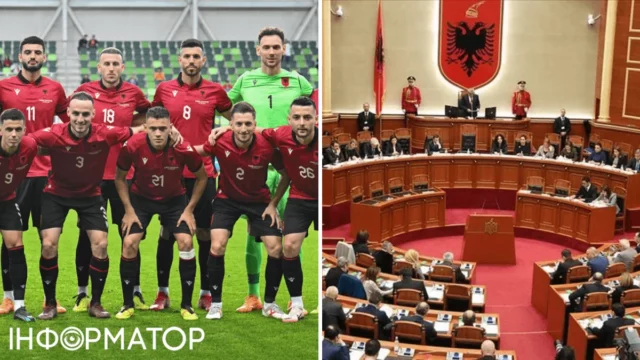The Impact of the European Football Championship 2024 on Albania’s Parliament
The excitement surrounding the European Football Championship in 2024 has transcended sports, even reaching the political arena in Albania. In an unexpected turn, the scheduled meeting of the Albanian parliament on June 14 was canceled, as many deputies chose to support their national team during this much-anticipated tournament. This is more than just a scheduling conflict; it highlights the strong cultural connection between sports and national identity that resonates deeply within the Albanian community.
To accommodate the fervent support for the team, parliament officials decided to move the session to June 13. However, the following session was completely called off. The move prompted criticism from opposition figures, with Gazment Bardhi, leader of the Democratic Party of Albania, challenging Prime Minister Edi Rama to clarify his administration’s decision. Bardhi pointed out the implications of mixing national pride with legislative duties, deeming the cancellation «unacceptable.»
The National Team’s Challenges at Euro 2024
The excitement is palpable as the Albanian national team finds itself in what many are referring to as the «group of death.» In their group, they’ll be facing formidable opponents: Italy, Croatia, and Spain. Their inaugural match against Italy, set for June 15, is sure to draw considerable attention, given Italy’s football heritage. Subsequently, they will clash with Croatia on June 19 and conclude their group stage against Spain on June 24.
Here’s a breakdown of the groups in Euro 2024:
- Group A: Germany, Scotland, Hungary, Switzerland
- Group B: Spain, Croatia, Italy, Albania
- Group C: Slovenia, Denmark, Serbia, England
- Group D: Poland, Netherlands, Austria, France
- Group E: Belgium, Slovakia, Romania, Ukraine
- Group F: Turkey, Georgia, Portugal, Czech Republic
The Intersection of Sports and Politics
This cancellation raises important questions about the relationship between sports and governance. How do cultural events influence political decision-making? Consider the example of Brazil, where national football victories often result in large-scale public celebrations, affecting governance and public policy. Analyzing this dynamic reveals that sports can serve as a unifying force, yet they also risk overshadowing critical political responsibilities.
Statistics indicate that events like the European Championship can significantly impact citizens’ engagement with their national identity. According to research by the Sports Marketing Agency, 76% of fans feel a stronger connection to their country during international competitions. In Albania, where national pride runs high, this connection can be particularly potent, underscoring the importance of balancing public sentiment with legislative duties.
Ultimately, while supporting a national team can evoke passion and unity, it is crucial for representatives to maintain their obligations in parliament. As Albania stands on the cusp of a thrilling football tournament, the need for legislators to effectively pursue their duties remains paramount, ensuring that both national pride and political integrity thrive in harmony.






